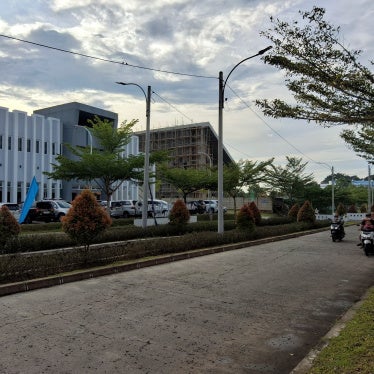(New York) – The Chinese government’s new policy of recalling passports restricts foreign travel for many residents of Xinjiang, Human Rights Watch said today. The policy, applicable to residents of the Xinjiang Uighur Autonomous Region since at least October, gives police wide power to scrutinize residents’ proposed visits abroad.
The government’s blanket recall of passports allegedly for reasons of “collective management” follows similar passport restrictions in the Tibet Autonomous Region, but has not apparently been imposed elsewhere in China. Xinjiang is home to 10 million predominantly Muslim Uighurs, and ethnic and religious discrimination against them is rampant, prompting some to flee.
“Chinese authorities have given no credible reason for taking away people’s passports, violating their right to freedom of movement,” said Sophie Richardson, China director. “Doing so across an entire region is a form of collective punishment and fuels resentment toward the government in a region where tensions are high.”
On October 20, 2016, the Shihezi Public Security Bureau (PSB) Immigration Office issued a statement on its official microblog account announcing that all passports registered in that area must be submitted to local police stations for an “annual review,” following which the police would hold them for “safekeeping.” The notice, dated October 19, warned that those who failed to turn in their passports risk being barred from leaving the country. It stated that those wishing to retrieve their passports must first apply for “an approval to leave the country” at their neighborhood government offices (Ch: 社区) before making an application at the PSB. Explanatory notes that accompanied the notice said the deadline for submitting the passports was February 28, 2017. The original October 19 notice has since been removed from the website, but can be accessed elsewhere.
A call to an immigration officer in Shihezi PSB confirmed the policy on October 26. Calls to seven immigration offices in various locations across Xinjiang – Fukang City, Karamay City, Korla City, Tacheng Prefecture, Manas County, Aksu Prefecture, and Karakax County – between October 27 and November 2 also confirmed the policy. However, it appears that the policy has not yet been announced in Urumqi, the autonomous region’s capital city. With the exception of one officer in Dabancheng District in Urumqi, several immigration officials in other Urumqi districts said that they have not received instructions to recall passports.
The officials who confirmed the recall to Human Rights Watch said the order was issued by the PSB at the regional level and had been rolled out across Xinjiang. They also confirmed that there would be an “annual review” of the passports, following which the police would hold them for “collective management” (Ch: 集中管理) or “collective safekeeping” (Ch: 集中保管). The officers did not respond to callers’ questions about why it would be safer for the police to keep the passports, only that it was to “make management easier,” or that it is “merely a change of management.” All the officers reached, except the one in Shihezi, said the passports must be handed in by the end of October.
The passport policy does not seem to have been applied consistently across Xinjiang. The explanatory note issued by the Shihezi immigration office states that those who reside abroad with valid long-term foreign visas are not required to hand in their passports. Other officers said individuals should “wait for phone calls from the local police stations” before handing them in. In Tacheng Prefecture, the officer said they would consider exceptions such as impending travel; in a follow-up call on November 2, an officer in the same office said the recall had not yet taken place.
When asked for an official statement of the new policy, one officer said, “Documentation is not for you to read.”
“That authorities won’t even explain this restrictive policy, let alone provide its basis, suggests another crude effort at undercutting Xinjiang residents’ rights,” Richardson said. “It’s hard to see why such a move is necessary – but it’s easy to see why there would be a harsh reaction.”
The officers provided little information as to how people could get their passports back. Two said they had received the instructions to recall them – but none on how to return them. Two others said the passport holders have to “explain their situation” about why they need their passports back or apply at the local police stations. Yet another two said a “proof of travel” document from the neighborhood office would be required; another said such a document could also be purchased from a certified travel agency.
Residents in Xinjiang are already subjected to a more onerous passport application process than other citizens in China. Xinjiang applicants are required to submit their bio-data to the police, which includes a blood (DNA) sample, a voice sample, a 3D image of themselves, and their fingerprints, according to a media report. Calls to four immigration offices, as well as to a government-approved travel agency, also confirmed that this bio-data is required for all passport applications, regardless of ethnicity, across the region. In addition, Xinjiang applicants are required to submit extra supporting documents other than those commonly required elsewhere in China, such as copies of identity documents of the family and friends they intend to visit.
In the past, police held the passports of Xinjiang residents whose documentation had been processed through travel agencies for “collective safekeeping.” In those cases, people had to apply and pay a fee each time they traveled to get the passports back; Xinjiang authorities announced that such restrictions had been dropped and that individuals could keep their own passports as of August 2015. But this new recall reverses and expands this policy and gives police – who already are empowered to approve all passport applications in China – additional power to approve each foreign visit.
The passport recall in Xinjiang has no basis in Chinese law.
Article 2 of China’s Passport Law states that “no organization or individual should illegally … seize passports.” Article 15 states that the courts, the procuratorates [office of the prosecutor], the police, the state security, and administrative supervisory authorities can seize passports only “where necessary for handling a case,” and only the passports “of the parties of a case.”
As a signatory to the International Covenant on Civil and Political Rights, the Chinese government is prohibited from taking actions that would interfere with the right that “everyone shall be free to leave any country, including his own.” That right is only subject to restrictions that are provided by law and are strictly necessary for national security, public safety, or public order, and are consistent with the other rights. A blanket restriction without basis in the law does not meet that standard. The disparate impact of the policy on the Uighur Muslim population is also discriminatory.
“Seizing the passports of an entire region violates both Chinese and international law,” Richardson said. “It does nothing to combat crimes or produce the ‘stability’ Beijing says it wants. Authorities should immediately abandon these arbitrary, discriminatory policies.”









